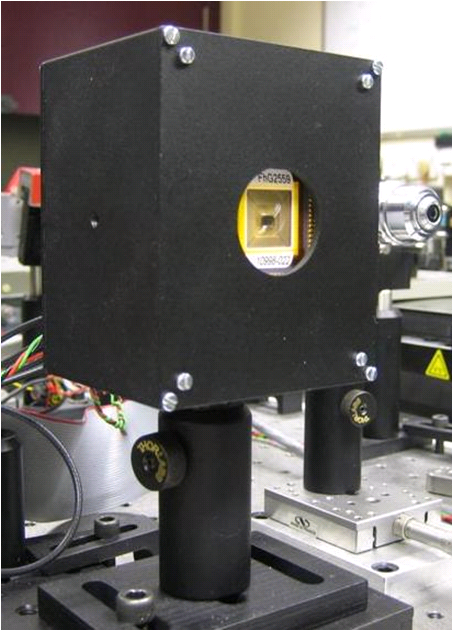Difference between revisions of "Exotic Ultrasonics for the real world"
| Line 15: | Line 15: | ||
==Achievements== | ==Achievements== | ||
| + | |||
| + | {|class="wikitable" align="right" | ||
| + | |- | ||
| + | |[[Image:Ultrafast_Camera.PNG|link=]] | ||
| + | |- | ||
| + | |} | ||
| + | |||
| + | |||
we have built two generations of modulated light cameras specially designed for pump probe measurements. The first device had 64 pixels and | we have built two generations of modulated light cameras specially designed for pump probe measurements. The first device had 64 pixels and | ||
Revision as of 13:30, 1 April 2011
details
Grant Number:
Staff involved:
other things to add.
Introduction
The project was to investigate ways to make high frequency ultrasonic measurements more practical and applicable to real world applications. Our approach to improve the utility of these experiments is to dramatically reduce experiment time by parallelizing the measurements. Two approaches were adopted - developing high frequency parallel camera working in the 1-10 GHZ range for real time measurement of the ultrasonic signals, and parallelization of the traditional approach of lock in detection.
Picosecond laser ultrasound is an established technique for material characterization. The frequencies involved span from ~1 - 100's of GHz. tbc.
Achievements

|
we have built two generations of modulated light cameras specially designed for pump probe measurements. The first device had 64 pixels and